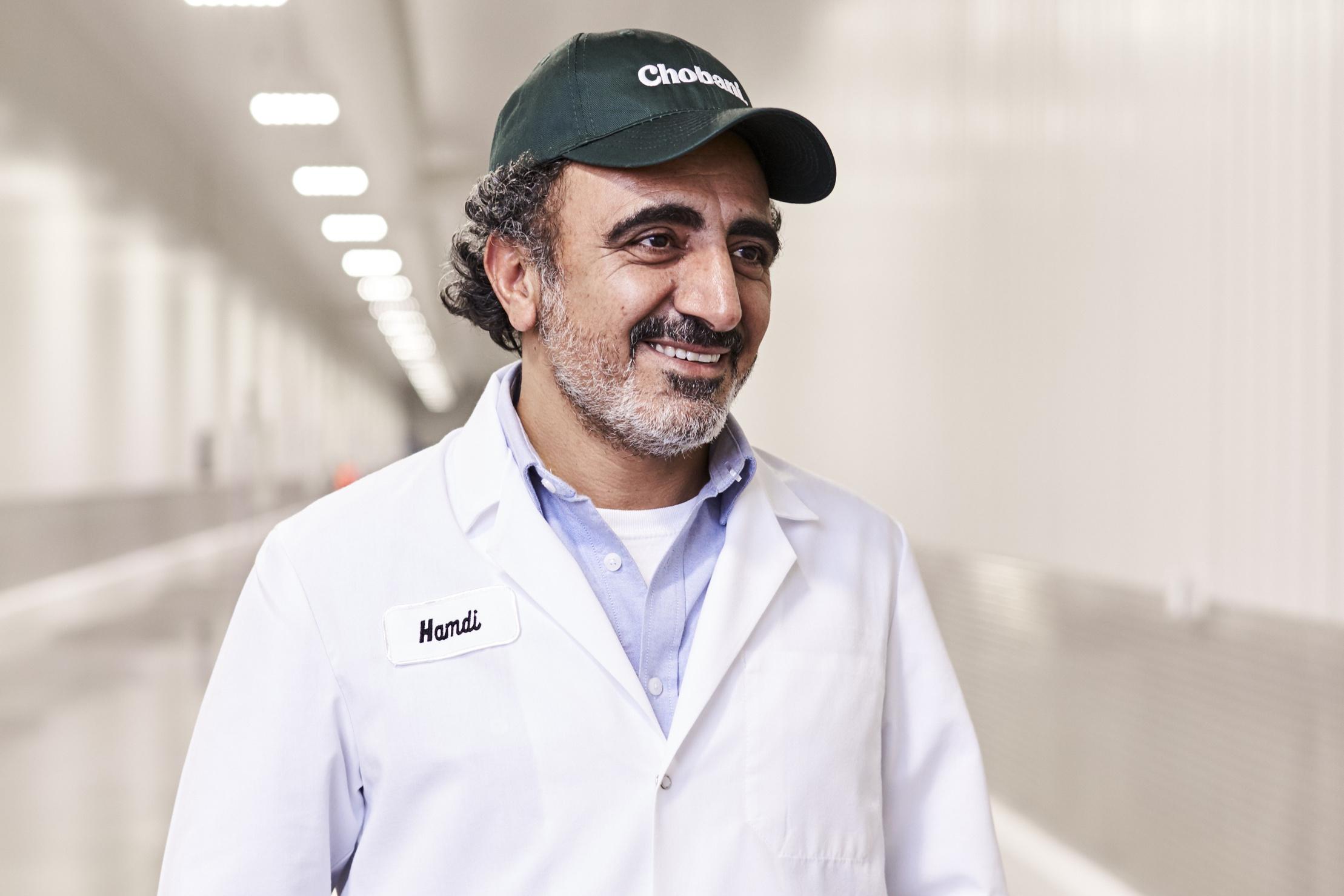
Courtesy of Chobani
Billionaire yogurt entrepreneur Hamdi Ulukaya, the founder of food company Chobani, has long been known as an innovator and someone whose company supports refugees and immigrants. On Thursday, Chobani—known for its Greek yogurt—becomes the first in the U.S. dairy industry to be certified with the Fair Trade seal of approval. The certification, bestowed by a nonprofit trade group called Fair Trade USA, indicates that Chobani—a $1.5 billion (2020 revenues) company with 2,200 employees—has been working with U.S. farms and cooperatives to improve working conditions.
The rollout of Fair Trade-certified products will take time, according to Ulukaya. For now, the company is releasing Fair Trade-certified versions of its 32 ounce tubs of yogurt. The goal is to do the same with dozens of products it has, he told Forbes in an interview on Tuesday.
The Fair Trade certification process requires the farmers that businesses buy from to improve on their labor practices—such as safe work conditions, humane work hours, protections against harassment and discrimination—as well as their environmental footprint, from carbon emissions to water use. “It’s not just a philosophy,” says Paul Rice, the founder and chief executive of Fair Trade USA. “It’s actually a rigorous 200-point checklist of social, labor and environmental criteria.” For example, the nonprofit, which also works with chocolate and cocoa farmers in developing countries, requiresfarmers to pay their employees at least monthly, provide written contracts for temporary workers employed more than a certain amount of time, and give employees at least six days of vacation each year.
Farms have to be certified based on Fair Trade’s standards, which are regulated through annual audits. Businesses like Chobani pay farmers an additional premium set by the nonprofit (for the dairy industry, that is 45 cents per 100 pounds of milk that a company buys from a farm) which supplements the costs of compliance as well as a bank account owned by dairy workers who get to invest back in their communities, such as increasing access to healthcare, transportation, or even building a soccer field.
Ulukaya, who grew up in a nomadic community in eastern Turkey, a mountainous region of the country where the main source of income is agriculture, said he was inspired to raise the standards at farms across the U.S. after one of his visits to Idaho, where Chobani has a 900-employee plant. He heard about the plight of undocumented workers, who make up about 50% of the dairy workforce in the U.S. Many of these workers dread daily tasks, such as traveling to a supermarket to buy groceries, out of their fear of deportation.
“[Undocumented farmers farm workers] have no rights: How do they get paid? What are the conditions they live in? What kind of safety measures do they have [at work]?,” Ulukaya said about the limited legal protection undocumented workers have. “So we asked Fair Trade USA if they could help us implement these standards in the farming community. If you go to the Idaho farmers [that supply to Chobani], they are taking care of their employees, whether they are documented or undocumented. But we wanted to make sure that we have communicated that through Fair Trade.”
Ulukaya’s company has worked with the Fair Trade group since 2019. Together with the organization, Chobani launched a pilot program called “Milk Matters” in New York and Idaho in July 2019 to start developing certification standards that could be applied to the wider dairy community across the nation. “Farmers are the most beautiful, the hardest-working people. But the conditions are hard, and the conditions have been hard for farmers for a long, long time,” said Ulukaya, who founded Chobani in 2005 and owes his $2 billion fortune to his majority stake in the company.
At a time when 60% of millennial and Gen Z customers say they plan to buy more products from large businesses that have taken care of their employees and positively affected society during the pandemic, a Fair Trade certification can also generate more sales for businesses like Chobani. According to Fair Trade USA’s Rice, in 2020, the total sales of Fair Trade-certified products was around $1 billion in the U.S. alone. The organization, which has been around since 1998, works with 1,400 brands and more than a million farmers and workers in nearly four dozen countries.
“Chobani is kind of a lighthouse in the industry in helping show that a higher bar of responsibility is not only possible, but it’s also good business,” Rice said.
Source: forbes.com









